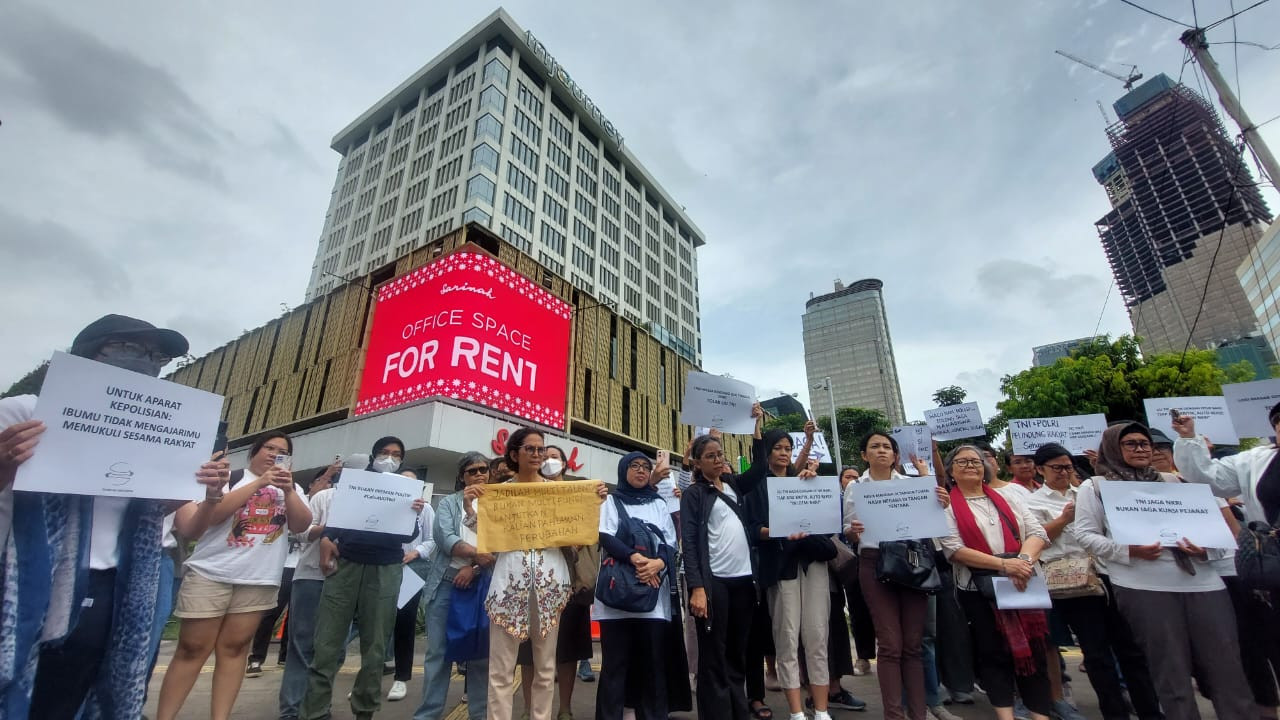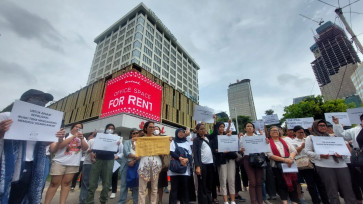Popular Reads
Top Results
Can't find what you're looking for?
View all search resultsPopular Reads
Top Results
Can't find what you're looking for?
View all search results'Oligarchization' blocks meaningful public participation in lawmaking
Collective action that involves all stakeholders of civil society is necessary to prevent the country's encroaching descent into an oligarchy.
Change text size
Gift Premium Articles
to Anyone
 Activists and intellectuals from Voices of Indonesian Mothers hold a rally at an intersection of Jl. Thamrin in Central Jakarta on March 28, 2025, demanding authorities to end violence against students protesting the revised Indonesian Military (TNI) Law in cities across the country. (Courtesy of Suara Ibu Indonesia/Olin Monteiro)
Activists and intellectuals from Voices of Indonesian Mothers hold a rally at an intersection of Jl. Thamrin in Central Jakarta on March 28, 2025, demanding authorities to end violence against students protesting the revised Indonesian Military (TNI) Law in cities across the country. (Courtesy of Suara Ibu Indonesia/Olin Monteiro)
A
recent article published in the Bulletin of Indonesian Economic Studies in January, titled “Business-Politics Relations in Indonesia: Oligarchization of Democracy”, provides an academic foundation for the long-held hypothesis that oligarchs play a dominant role in Indonesia’s legislative process.
Written by Greenpeace Indonesia activists Iqbal Damanik, Arie Rompas and Zulfa Nadia, alongside academics Ward Berenschot (University of Amsterdam) and Eve Warburton (Australian National University), the article examines how key legislative products in Indonesia have been shaped to serve oligarchic interests.
One of the main findings of their study is the shift in political actors over time. Under Soeharto’s New Order regime, bureaucrats and career politicians dominated the scene. In contrast, post-1998 democratic Indonesia has been increasingly led by “politician-capitalists”, or individuals who simultaneously hold political power and maintain direct business interests. In other words, the country’s legislative and policymaking processes have become deeply knotted with oligarchic control.
The composition of the House of Representatives reflects this trend: 45 percent of members serving the 2019-2024 term have direct ties to the business world, up from 44 percent in 2014-2019. A similar pattern is evident in the executive branch, where 65 percent of government ministers in the 2019-2024 cabinet had business affiliations, up from 54 percent in the previous term.
This “oligarchization” of politics has resulted in a significant decline in public representation in policymaking. Rather than advancing the people’s aspirations, politicians are increasingly accommodate business interests.
But how exactly do these oligarchic networks ensure their priorities are manifested in law? At least five recurring strategies are employed to push through problematic laws, often benefiting business elites at the expense of public interest.
First is sidestepping legislative priorities. One common tactic is the insertion of draft legislation not originally included in the National Legislative Program (Prolegnas). This method has been used to fast-track controversial bills into law. Examples include the 2020 revisions to Constitutional Court Law and the Minerals and Coal Law, the 2024 amendments to the laws on state ministries and presidential advisory councils, as well as the recently passed revision to the Indonesian Military (TNI) Law.


















